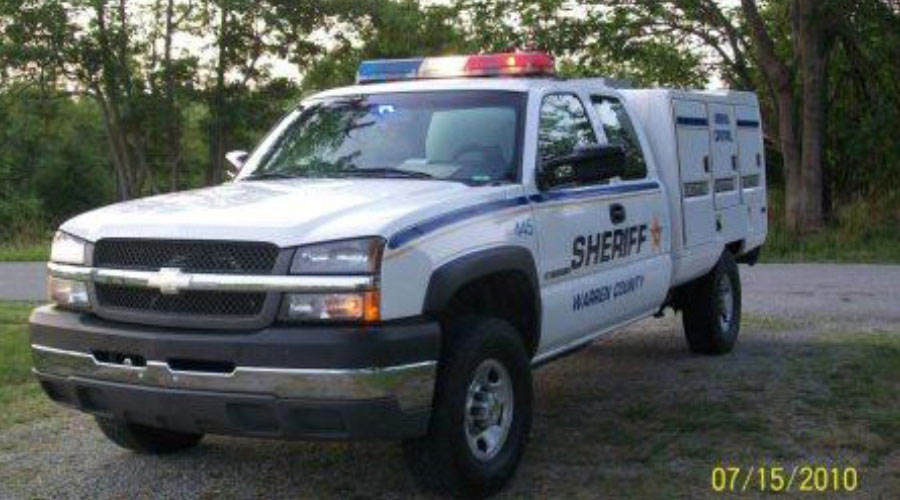In this section

The Warren County Sheriff’s Office Animal Control Section provides animal control services to county residents 6 days a week depending on training and other events. After hours, animal control deputies are on call for those calls deemed an emergency. The majority of calls for service will be preformed between 7:30 am and 6:00 pm. The Animal Control Section consists of one deputy and one civilian working under the Special Services Captain Curtis Hargett. Animal Control deputies work closely with the Bowling Green / Warren County Humane Society (BGWCHS) personnel in the performance of their duties.
Animals picked up by Animal Control are taken to the BGWCHS located at 1925 Old Louisville Road, Bowling Green, KY 42103. The phone number to the shelter is 270-842-8572. More information can be found at www.bgwchs.petfinder.com. Anyone contacting the Sheriff’s Office for information about animals found and / or impounded will be referred to the shelter.
Deputies assigned to Animal Control investigate complaints relating to proper care and treatment for animals, strays, and nuisance or vicious animals. Sick or injured animals are referred to the BGWCHS emergency number. Deputies enforce Kentucky State Law and County Ordinances relating to all domesticated animals. Normally, calls for wildlife are referred to Kentucky Fish and Wildlife unless there is a issue regarding human safety.

Animal Control Laws
Proper Care for Animals- Under Kentucky State Law, KRS 525.130
(1), owners or caretakers are responsible for a minimum of four things for their pets, adequate food (nutritional), drink, space, and health care. Animal Control Deputies will attempt to correct the problems working with the owners, but failure to correct infractions outlined in the five items below may result in criminal summons, citation and or arrest.
Vicious Dog- Under Kentucky State Law, KRS 258.235
Authority to kill or seize dog; return by court to owner of vicious dog; liability for damage; proceeding by person attacked by dog; disposition of dog after seizure; powers of animal control officer; vicious dog not to run at large
(1) Any person, without liability, may kill or seize any dog which is observed attacking any person.
(2) Any livestock owner or his agent, without liability, may kill any dog trespassing on that owner’s property and observed in the act of pursuing or wounding his livestock.
(3) Any dog determined to be vicious by a court and allowed to be returned to an owner shall be confined in a locked enclosure at least seven (7) feet high or a locked kennel run with a secured top. The dog may leave the enclosure only to visit the veterinarian or to be turned in to an animal shelter. The dog shall be muzzled if leaving the enclosure for either of these purposes.
(4) Any owner whose dog is found to have caused damage to a person, livestock, or other property shall be responsible for that damage.
(5) (A) Any person, who has been attacked by a dog, or anyone acting on behalf of that person, may make a complaint before the district court, charging the owner or keeper of the dog with harboring a vicious dog. A copy of the complaint shall be served upon the person so charged in the same manner and subject to the laws regulating the service of summons in civil actions directing him to appear for a hearing of the complaint at a time fixed in the complaint. If the person fails to appear at the time fixed, or if upon a hearing of the parties and their witnesses, the court finds the person so charged is the owner or keeper of the dog in question, and that the dog has viciously and without cause, attacked a human being when off the premises of the owner or keeper, the person shall be subject to the penalties set forth in KRS 258.990(3)(b), and the court shall further order the owner or keeper to keep the dog securely confined as provided by subsection (3) of this section, or the court may order the dog to be destroyed.(b) The animal control officer shall act as an officer of the court for the enforcement of any orders of the court in his jurisdiction pertaining to this subsection
(6) For his services in the proceedings, a peace officer shall be entitled to the same fees to which he is entitled for performing similar services in civil cases. In all proceedings under this section, the court shall place the costs upon either party as it may determine.
(7) It shall be unlawful for the owner or keeper of any vicious dog, after receiving an order under subsection (5) of this section, to permit the dog to run at large or to appear in public except as provided in subsection (3) of this section. Any vicious dog found running at large may be killed by any animal control officer or peace officer without liability for damages for the killing.
– Confinement and control of female dog when in heat
Under Kentucky State Law - KRS 258.255
Every female dog in heat shall be confined in a building or secure enclosure in such a manner that the female dog cannot come in contact with a male dog except for a planned breeding.
Animal Control FAQs
What do you do if you are bitten by a wild or domestic animal?
If you have been bitten, scratched, or exposed to an animal’s saliva:
• Wash the wound right away with soap and water for at least 10 minutes.
• Call your doctor or go to a hospital emergency room, depending on the severity of the wound.
• Provide a description of the animal and, if possible, confine the animal so it can be quarantined or tested.
Who do you contact when a bite occurs?
Report all animal bites and other injuries to humans caused by animals to your local health department or the Sheriff’s Office. The local health department environmentalist may recommend 10-day quarantine for dogs, cats, or ferrets. However, bites by wild animals, necessitate immediate rabies testing. Any physician or other attending medical service provider who treats or consults on an animal scratch or bite incident is required to make a report to the local health department within 12 hours.
What do I do if a pet (dog, cat, or ferret) is bitten by a wild animal?
(1) Wear gloves to handle your pet, so you do not become exposed to the attacking animal’s saliva. Confine your pet or otherwise make sure it does not run away.
(2) Call your veterinarian and local animal control. Any animal bitten by either a bat or wild mammal (in Kentucky usually skunks, foxes, or raccoons) that is not available for rabies testing should be regarded as having been exposed to rabies.
No cases of rabies among ferrets were confirmed cases of rabies in Kentucky in 1998-99. Still, it is important to vaccinate your pets. Unvaccinated dogs, cats, or ferrets exposed to a rabid animal should be euthanized immediately. If the owner is unwilling to do this, the animal must be placed in strict isolation for six months and vaccinated one month before being released. Dogs, cats and ferrets with current rabies vaccinations given by a licensed veterinarian should be revaccinated immediately and kept under observation for 45 days. Animals with expired vaccinations need to be evaluated on a case-by-case basis. Vaccination of all dogs, cats, and ferrets on the premises protects them from the risk of rabies.
If you have any questions or concerns relating to the Animal Control Section of the Warren County Sheriff’s Office, don’t hesitate to contact our office at (270) 842-1633.


